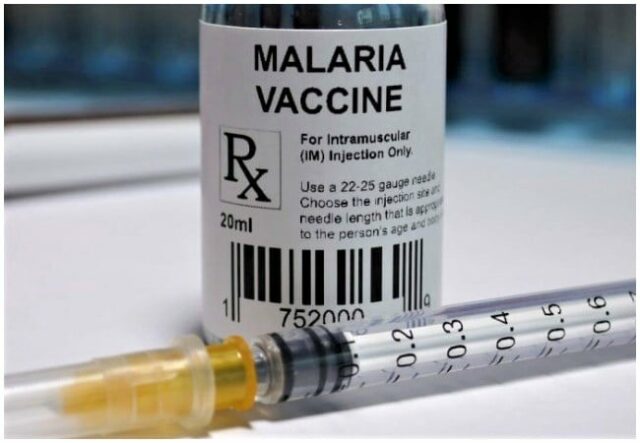The Ogun State Chairman of the Nigerian Medical Association, Dr. Kunle Ashimi has expressed concern over the exclusion of Nigeria from the list of African countries to benefit from the new malaria vaccine rollout by the World Health Organisation and its partners.
While lamenting that Nigeria is still grappling with high figures of malaria cases, Ashimi stressed that the country not benefiting from the vaccine would make eliminating the disease by the year 2030 difficult to achieve.
Nine African countries are to receive 18 million doses of the first-ever RTS, S/AS01 malaria vaccine. But Nigeria, which accounts for an estimated 38.4 percent of global malaria deaths in children aged under five years, is not among the nine that will from the last quarter of 2023 begin to have access to the vaccine.
The countries listed by Gavi Vaccine Alliance, WHO, and the UNICEF are Benin Republic, Burkina Faso, Burundi, Cameroon, Democratic Republic of Congo, Niger Republic, Liberia, Sierra Leone, and Uganda.
Gavi, WHO, and UNICEF had explained in a joint statement that the rollout will begin by early 2024, and that the vaccines are already in use in three African countries—Ghana, Kenya, and Malawi.
The NMA chairman in his reaction said excluding Nigeria from the vaccine rollout will slow down the fight against the disease in the country.
He stressed that beyond the issue of vaccines, the country has not been able to find solutions to other factors that promote malaria.
Identifying poor drainage systems, dirty environment, and stagnant water as key issues mitigating against Nigeria’s effort at ensuring zero malaria spread, Ashimi maintained that all stakeholders need to partner in order to achieve total eradication of the disease.
He said, “The implication of Nigeria missing out is very simple. We will eventually not catch up with the 2030 goals. While others are recording reduced number of cases and death, Nigeria will still be grappling with its own figure because even beyond the issue of vaccines, other factors that promote malaria are still there.
“While other countries will be recording reductions in that regard, it will continue in Nigeria. While those other countries are able to save lives, we will still be looking for how to save ourselves from the disease.
“One of the things that you will find is that malaria reduces productivity. People who are sick can’t go to work, even if they do, they can’t perform optimally.
“Aside from affecting productivity, the amount of money that families will spend on malaria treatment will also take away part of their disposable income.
“Apart from the fact that it is a two-headed sword because when you are sick, you can’t work to earn money, and you will still have to spend to get well. The mortality rate will just still be there.”
On how to curb the spread of malaria, the NMA chairman said it must be through collaborative efforts.
According to him, “This requires having good drainage system and absence of stagnant water anywhere. We can also prevent ourselves by sleeping inside insecticide-treated net, or using pesticide to kill mosquitoes.
Insecticides also have their own side effects because people can inhale the chemicals. Insecticides treated net is the best, but the availability is very low.
“Another problem we have with the treatment of malaria is that there are lots of fake drugs out there. Some people are very poor and can’t afford malaria drugs, so they keep using going herbs. When that does not work, it becomes complicated. They either die or go to the hospital where they will need to spend a lot of money.
“Vaccination is the best option. It is important that vaccines go along with finding solutions to other factors affecting the eradication of malaria because the disease is one of the reasons why productivity in Africa is low apart from other things.
“The implication is that we will continue to be where we are with sick people and low productivity. In fact, students who fall sick too often are not likely to become brilliant because they stay out of school for many days. They spend a lot of their energy fighting infections.”
Dr. Ashimi, who is a principal medical officer at Federal Medical Centre, Idi-Aba, Abeokuta, Ogun State, urged the government to begin plans to produce local malaria vaccines, so as to make it readily available for Nigerians.
“What we expect the government to do is if there is still any window to get into this project, they can still apply, or as an alternative, start local vaccine production, This will make the vaccine readily available to people.
“Government needs to work hard to eradicate the environmental factors that promote malaria breeding and prevent malaria parasites from getting in contact with people. The use of insecticide-treated nets must be emphasized and the nets made available,” he said.









